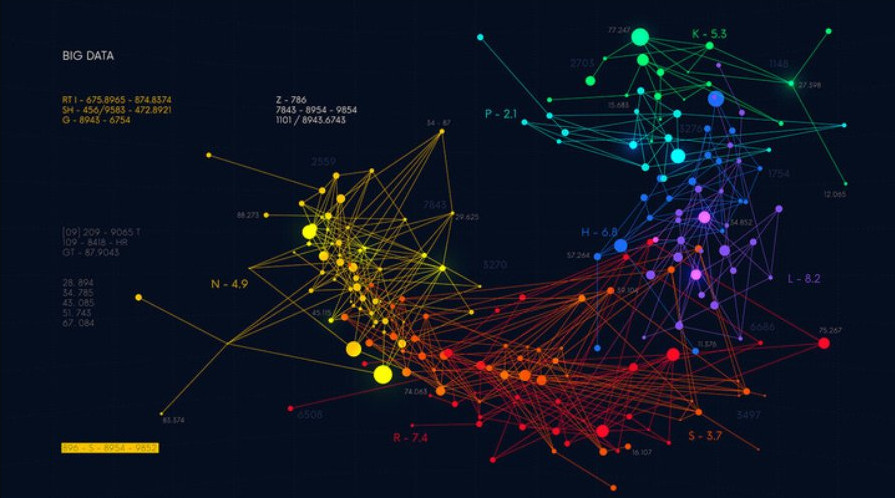
The Internet of Things (IoT) is ushering in a digital transformation that is set to reshape the way we live and work, and it’s having a profound impact on the business landscape and the global economy. IoT is not just a technological buzzword; it’s a game-changer with the potential to revolutionize industries, create new business models, and unlock unprecedented economic value. In this article, we’ll explore the importance of IoT in shaping the future of business and the economy and how industry leaders like NetLume are at the forefront of this transformative wave.
Understanding the IoT Phenomenon:
At its core, IoT is a network of interconnected devices that collect and exchange data through the internet. These devices, including environmental sensors, fitness trackers, smart appliances, and more, fall into two categories: sensors that gather data and actuators that take action based on that data. The equation for IoT can be simplified as: Sensors + Actuators + Internet = the Internet of Things.
IoT’s Economic Impact:
The economic potential of IoT is staggering. McKinsey Global Institute estimates that IoT could contribute between $3.9 trillion to $11.1 trillion per year to the global economy by 2025. This impact spans across various sectors, with healthcare, manufacturing, and retail being some of the primary beneficiaries.
Businesses have already witnessed remarkable transformations due to IoT:
- Smarter Products/Devices: IoT enables companies to collect data on how their products are used, allowing for continuous improvement and customization. For example, tech giants like Microsoft and Apple analyze user data to enhance their products.
- Remote Work and Education: The COVID-19 pandemic accelerated the adoption of remote work and online education, highlighting the importance of IoT in supporting these trends. The job market now offers a multitude of remote work opportunities.
- Android-Based Devices: Android’s open-source nature has made it a popular choice for IoT developers, resulting in a growing number of Android-based smart devices.
- Automatization and Robots: IoT allows for remote control and monitoring of devices, paving the way for automation. The combination of IoT and robotics is transforming industries by streamlining supply chain operations and automating various processes.
- Asset Tracking: IoT sensors like RFID tags have revolutionized product tracking, offering a more efficient alternative to traditional barcodes.
- Predictive Maintenance: IoT has introduced preventive maintenance practices through constant monitoring of equipment health. Digital twins, virtual models of physical machines, are used to simulate performance and identify vulnerabilities, reducing maintenance costs and downtime.
- Transformation of Business Models: IoT is driving fundamental shifts in business models, such as the decline of traditional credit cards in favor of mobile payments and the automation of delivery and logistics services.
- Energy and Resource Efficiency: Companies are reporting significant reductions in energy consumption and better waste management through IoT. These improvements contribute to a more sustainable and cost-effective operation.
- Efficiency and Profit Boost: IoT enhances efficiency, productivity, and profits by reducing downtime, optimizing processes, and providing real-time data for better decision-making.
- Demand for Skilled Workers: IoT’s rapid development has created a skills gap, with a shortage of highly skilled specialists to build and maintain IoT systems.
- Cloud Technologies: IoT relies heavily on cloud technologies to process and analyze vast amounts of data, accelerating the development of cloud technologies.
Emerging Business Models:
New business models are emerging as a result of IoT’s growth:
- Industry 4.0: IoT is driving the fourth industrial revolution, characterized by high device interconnectivity, automation, and big data.
- Wearable Technology: The global wearable technology market is on the rise, offering smart devices that provide valuable insights and functionalities.
- Smart Agriculture: IoT is transforming farming practices by providing data-driven insights for crop management.
- Self-Driving Cars: IoT sensors and automation are paving the way for autonomous vehicles, with the market projected to reach substantial figures.
- Smart Homes: IoT technology is leading to the creation of smart homes, integrating various devices into a unified system.
- Smart Cities: The concept of smart cities is emerging, with IoT-driven solutions for urban management and sustainability.
- E-Healthcare: IoT sensors and systems are revolutionizing healthcare by providing real-time patient data and enabling the use of drones for medical transport.
NetLume: Leading the IoT Revolution:
NetLume, a prominent player in the IoT space, offers an all-in-one data platform for AI applications and Industrial IoT. Their platform empowers businesses to design domain models with a user-friendly, low-code to no-code approach. With features like real-time monitoring, customizable dashboards, AI model deployment, and more, NetLume simplifies IoT implementation.
Conclusion:
The Internet of Things is not just a technological advancement; it’s a transformative force with far-reaching implications for businesses and the global economy. The economic impact of IoT is already significant, and it’s poised for exponential growth in the coming years. As businesses adapt to the IoT revolution, industry leaders like NetLume are at the forefront, offering innovative solutions that enable them to harness the full potential of this remarkable technology. The future of business and the economy is interconnected with the Internet of Things, and embracing it will be the key to success in the digital age.
